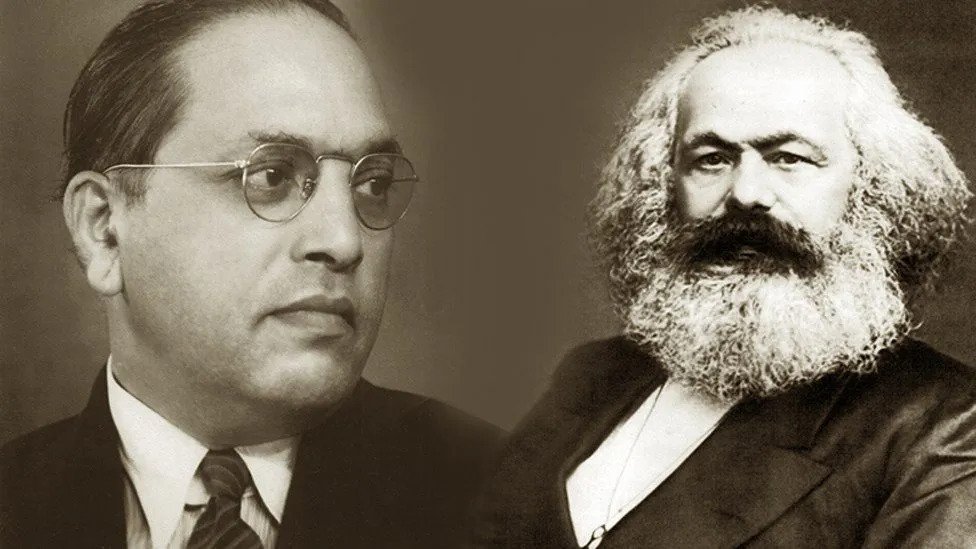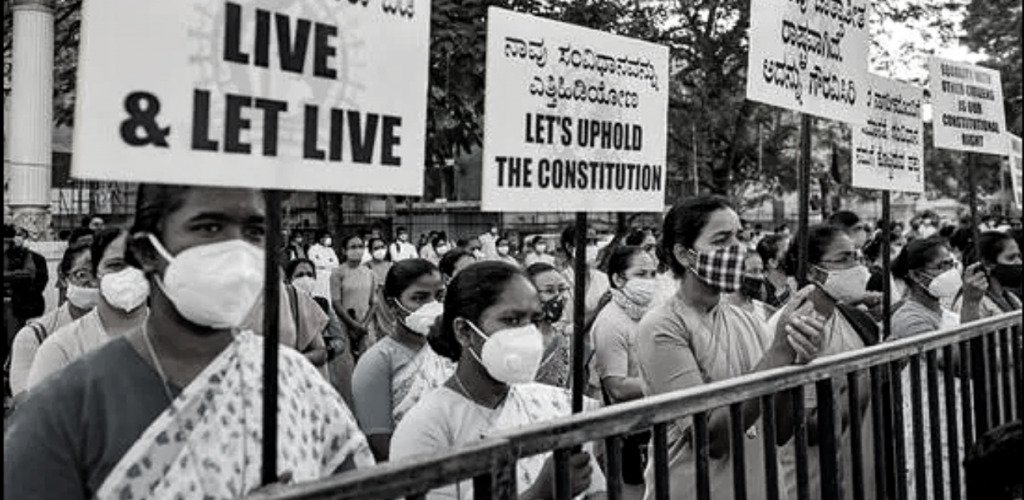By: Shilpa Roy
Is it legal for one man to practice polygamy? And in terms of succession and inheritance, is it legal for males to have a larger share in property than females? After the 22nd Law Commission of India initiated a fresh consultation process on the Uniform Civil Code by seeking views from stakeholders, these questions began to pop up again. In India, laws are uniform irrespective of caste, creed, religion, gender, and economic status. India has a plethora of uniform laws. The best example of it is the grundnorm of the nation i.e. The Constitution of India. However, this uniformity has an exception which is the “personal laws” vary from religion to religion. Different religious groups like Hindu, Muslim, Christian, and Parsis have their age-old personal laws as a result of which problems arise from time to time. So, what is Uniform Civil Code? Article 44 of the Indian Constitution provides that there shall be a Uniform Civil Code throughout the territory of India. But in a secular country like India will it be possible to have one nation, one law?
A sneak peek into History
The ancient scriptures of Hindus had the solution to apparently any issue/case. Scriptures were interpreted by the religious saints and executed by the kings. Similarly, the Muslims had Shariah law, the interpretation of which is done by Kazis and executed by Nawabs. But the arrival of the East India Company in the year 1608 brought with it a new problem of implementation of laws on Indians. By the year 1862 courts were established in Bombay, Calcutta, and Madras, and also the codification of personal laws was at full pace, for example, the Hindu Widow Remarriage Act, 1856, The Muslim Personal Law (Shariat) Application Act, 1937, Dissolution of Muslim Marriage Act, 1939, etc.
Constitutional Law vs. Personal Law: The never-ending tussle
In the case of the State of Bombay vs. Narasa Appa (1952), a Hindu man was convicted of bigamy under the Bombay Prevention of Bigamous Hindu Marriages Act. The man alleged that this particular law violated his religious rights because he had no son from his first wife and according to scriptures if his last rites were not performed by his son he will not attain moksha. The court quashed all the arguments and convicted the man for bigamy. Again, in the landmark judgment of Mohd Ahmed Khan vs. Shah Bano Begum (1985) Shah Bano was given talaq by his husband after 40 years of marriage and having five children. She claimed her right to maintenance under Section 125 Cr. P.C. but her husband filed her appeal against this claim. A five-judge bench of the Supreme Court headed by Chief Justice Y.V Chandrachud declared the case as a landmark case and held that even Muslim women have a right to maintenance under Section 125 Cr. P.C. also said that the implementation of the Uniform Civil Code will help in national integration. However, this progressive judgment was overturned by the then Rajiv Gandhi government by passing Muslim Women (Protection on Divorce) Act, 1986 which states that a Muslim woman cannot claim maintenance under Section 125 of Cr. P.C. If we observe the recent development the case of Shayara Bano i.e. The Triple Talaq case becomes important. In this case, Shayara Bano’s husband divorced her via Talaq-e-biddat as a result of which Shayara Bano filed a Writ Petition in the Supreme Court of India. By this writ petition, three practices of Muslim law were challenged as derogatory: polygamy, nikah halala, and talaq-e-biddat. In response to this, the All India Muslim Personal Law Board said that Muslim personal law is not codified as a result of which the judicial review of the same is impossible but the apex court by a 3:2 majority declared Triple Talaq as unconstitutional and held that Parliament has the authority to decide its validity.
The way forward
In 2023 when PIL was filed in the Supreme Court of India for the implementation of the Uniform Civil Code, it closed the issue leaving it for the Parliament to consider. PM Narendra Modi and BJP’s Election Manifesto has always promised the implementation of UCC in India. The 22nd Law Commission of India sought consultation from public and religious organizations on UCC up to 14th July 2023 is a welcome step. In a vast country like India with a population of 1.42 billion where different groups have different beliefs, UCC does not seem feasible. Because under Hindu Law marriage is regarded as sacrosanct, divorce is still stigmatized under Christian Law, marriage is a contract under Muslim Law and registration of marriage is a vital ritual under Parsi law. Thus it is necessary to respect the diversity of different groups and one religion cannot be imposed upon another. Moreover, if there is no consensus on UCC the only way out is to amend the personal laws to make it less discriminatory, provided it does not violate the Fundamental Rights. The state has all the authority to remove any social justice prevalent giving the primacy to national interest as well as protecting the basic human rights of citizens. The state should review and amend personal laws to fit into the requirements of the present progressive society by declaring the laws which are discriminatory and derogatory as “unconstitutional”. Uniformity does not imply that all religious groups will have to follow one particular ritual; rather it means that their rights shall be legally protected, and laws will be gender-neutral. If Article 14, Equal Pay For Equal Work, or Article 21 of the Indian Constitution was not seen as a threat to the diversity of India, why UCC is seen as a possible threat? The Constitution of India is the ground-norm of the nation and to preserve its sanctity the personal laws need to be reviewed thoroughly. Moreover, it is noteworthy that Uniform Civil Code is a Directive Principle of State Policy and not a Fundamental Right, which means that UCC cannot be enforced in a court of law. Now the ball is in the court of both Legislature and Judiciary to handle this sensitive task of keeping national integration intact. Uniform Civil Code is not a communal weapon to radicalize society but rather a step to eliminate such laws from society which are discriminatory or disparaging. (The author is an advocate, author, and faculty based in Guwahati, Assam. She can be reached at shilparoy11291@gmail.com)








